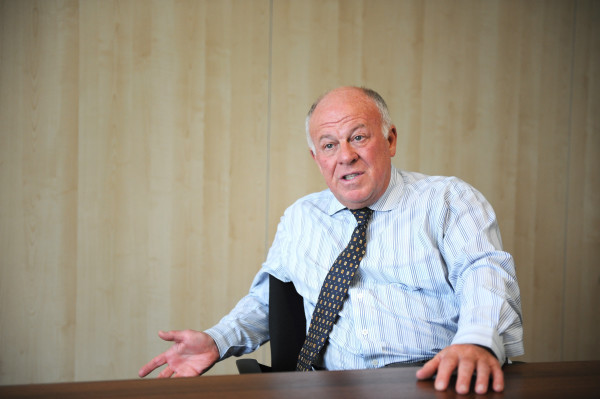

Peter Hargreaves has urged investors not to base investment decisions on the historic bounce backs of markets, warning the economy bears “no resemblance” to previous booms and that “macroeconomic shifts” should be accounted for.
In a note to investors today (March 30), the Hargreaves Lansdown founder said some of the best times to invest over the last 50 years had been just after stock market crashes, namely 1975, 1980, 1988, 2003 and 2009.
But he warned experience of these bounces could “hinder wise decisions” in the current market, noting that economies and businesses had changed and some sectors would not react how they had done in the past.
He said: “Whilst traumatic falls in stock markets can provide opportunity, business changes. Sectors which had the reputation of eventually ‘coming-good’ might not follow past experience.”
Mr Hargreaves also thought the sectors which some investors had remained cautious about, such as technology, had been the ones that had continued to function in the chaos of the last few weeks.
He added: “More importantly, many consumers who have shunned modern technology have joined the worldwide movement to increasingly embrace the internet.”
Since the start of the year, 28 per cent has been wiped from the FTSE 100 while the S&P 500 has dwindled 21 per cent.
But Netflix’s share price has jumped 8 per cent in 2020 so far while Zoom — a video communications firm — has seen its share price rocket 120 per cent since the start of the year.
In general businesses are significantly cheaper than they were at the start of 2020, meaning bargain hunters are keen to invest while markets are low.
Mr Hargreaves, chairman of Blue Whale Capital, said: “Investors have, for a while, considered the share price of businesses at the forefront of the new economy too expensive — they are a lot cheaper now.
“I challenge the wise old heads to remember the past opportunities but take into account that the world economy bears no resemblance to 1974.”
He said the Blue Whale portfolio had many of the companies he believed were likely to increasingly benefit post-crisis. The Blue Whale Growth fund's top 10 holdings included Adobe, Microsoft, Amazon and Paypal as at December 31, 2019.
Ben Yearsley, investment consultant at Fairview Investing, said there was a buying opportunity in the sectors which were likely to behave the same way as previous crises but for other sectors there could be a "fundamental shift in the wrong direction".
He said: "Will the whole working from home movement mean companies going forward realise they need much less office space?
“And finally there will be companies that prosper and I agree with Mr Hargreaves here in that technology is the obvious beneficiary.”
Mr Yearsley said although stocks were cheaper, the coronavirus crisis meant people were not spending money on whole swathes of the economy meaning you needed financially sound businesses as well as ones that could be long-term winners to see the bounce back.
Paul Stocks, financial services director at Dobson and Hodge, agreed it was unclear whether today’s markets present a “buying opportunity”.
He said: “Only time will tell the full impact this will have and therefore, only then, will we know whether this is a buying opportunity or not.
“Broader financial planning can take this all into consideration. As such, we are still investing new funds as advised before this all took hold as events like this are assumed to take place from time to time.”
However investment manager at GDIM Tom Sparke’s belief that recovery would come was “unwavering”.
He said: “It may well be that some former leaders will be the laggards, but we will see assets recover, as they have after every crash and crisis in history.”
imogen.tew@ft.com
What do you think about the issues raised by this story? Email us on fa.letters@ft.com to let us know.




